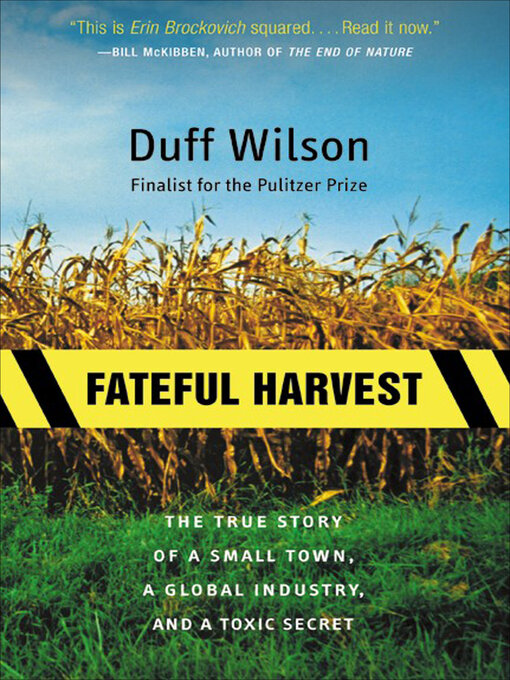I see soil in a new light, and I wonder about my own lawn and garden. What have I sprinkled on my backyard? Is somebody using my home, my food, to recycle toxic waste? It seems unbelievable, outlandish — but what if it's true?
A riveting expose, Fateful Harvest tells the story of Patty Martin — the mayor of a small Washington town called Quincy — who discovers American industries are dumping toxic waste into farmers' fields and home gardens by labeling it "fertilizer." She becomes outraged at the failed crops, sick horses, and rare diseases in her town, as well as the threats to her children's health. Yet, when she blows the whistle on a nationwide problem, Patty Martin is nearly run out of town.
Duff Wilson, whose Seattle Times series on this story was a finalist for the Pulitzer Prize, provides the definitive account of a new and alarming environmental scandal. Fateful Harvest is a gripping study of corruption and courage, of recklessness and reckoning. It is a story that speaks to the greatest fears — and ultimate hope — in us all.

